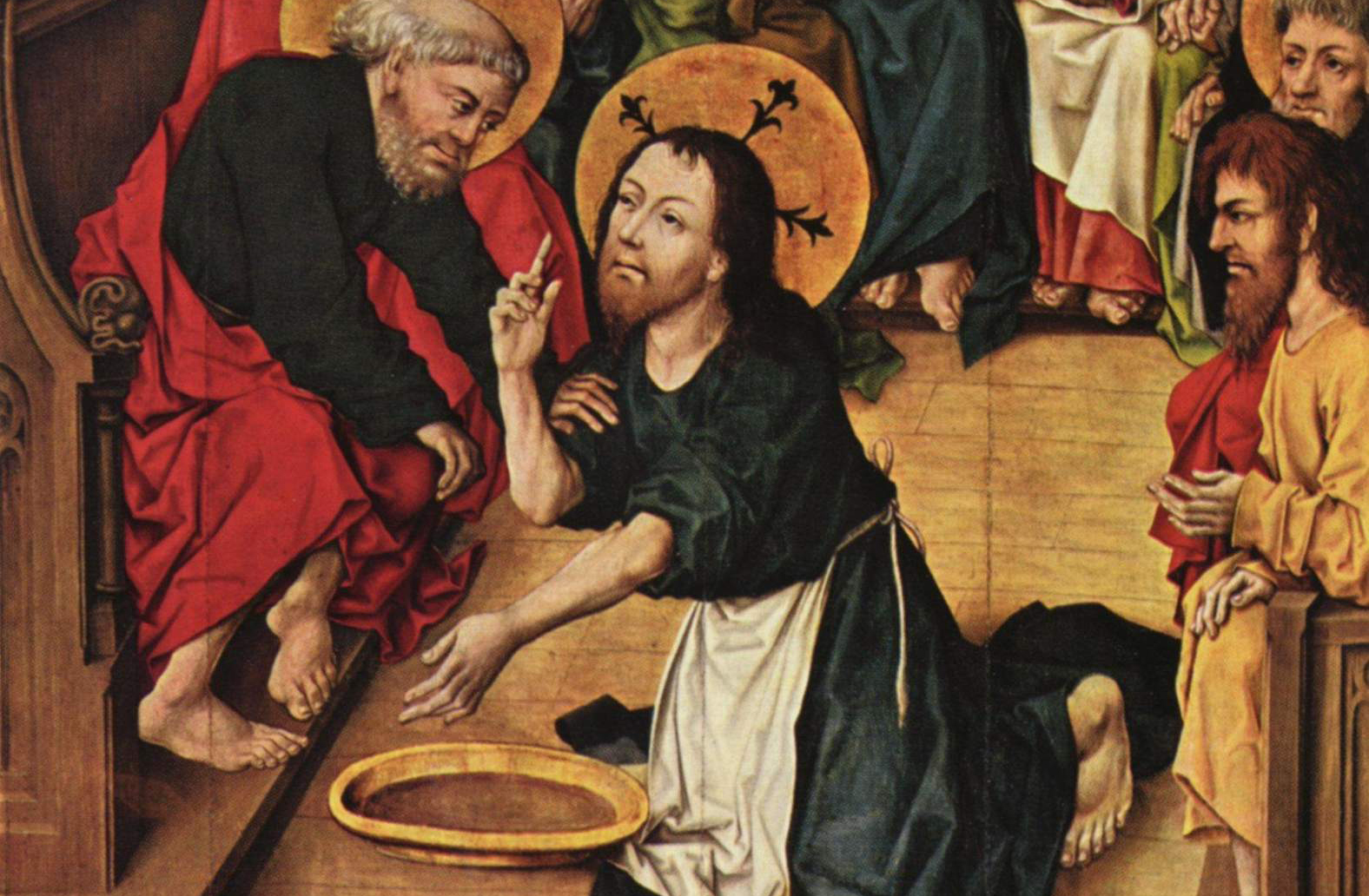John 13:1-15
Before the feast of Passover, Jesus knew that his hour had come to pass from this world to the Father. He loved his own in the world and he loved them to the end. The devil had already induced Judas, son of Simon the Iscariot, to hand him over. So, during supper, fully aware that the Father had put everything into his power and that he had come from God and was returning to God, he rose from supper and took off his outer garments. He took a towel and tied it around his waist. Then he poured water into a basin and began to wash the disciples' feet and dry them with the towel around his waist. He came to Simon Peter, who said to him, “Master, are you going to wash my feet?” Jesus answered and said to him, “What I am doing, you do not understand now, but you will understand later.” Peter said to him, “You will never wash my feet.” Jesus answered him, “Unless I wash you, you will have no inheritance with me.” Simon Peter said to him, “Master, then not only my feet, but my hands and head as well.” Jesus said to him, “Whoever has bathed has no need except to have his feet washed, for he is clean all over; so you are clean, but not all.” For he knew who would betray him; for this reason, he said, “Not all of you are clean.”
So when he had washed their feet and put his garments back on and reclined at table again, he said to them, “Do you realize what I have done for you? You call me ‘teacher' and ‘master,' and rightly so, for indeed I am. If I, therefore, the master and teacher, have washed your feet,
you ought to wash one another's feet. I have given you a model to follow, so that as I have done for you, you should also do.”
Why has Jesus done this now? The Apostles were to enjoy honor in the future. In order then that they may not exalt themselves one above the other, and say as they did before, "Who is the greatest" (Matt 18:1), nor be angry one against the other, He takes down the ambitions of them all, as though by saying, "although you may be very great, you ought to have no high thoughts towards your brother." And He mentioned not the greater action, that "if I have washed the feet of the traitor, what great matter if you one another's?" but having exemplified this by deeds, He then left it to the judgment of the spectators. Therefore He said, "Whosoever shall do and teach, the same shall be called great" (Matt 5:19); for in demonstrating is to teach.
What pride should this not remove? He who sits upon the Cherubim washed the feet of the traitor, and do you, O man, you that are dust, do you exalt yourself, and are you great? And how great a hell would you not deserve? If then you desire a true greatness, come, I will show you the way to it; for you don't even know what it is. The man then who gives heed to the present things as being great, has a conceited soul. For as little children are eager for trifles but cannot even form an idea of important matters; so in this case, one who is truly wise, will deem present things as nothing, but he who is not of such a character will be intent upon cobwebs and shadows and dreams of things less substantial than these.
參考 References:
Homily 71 on the Gospel of John (St. John Chrysostom)
